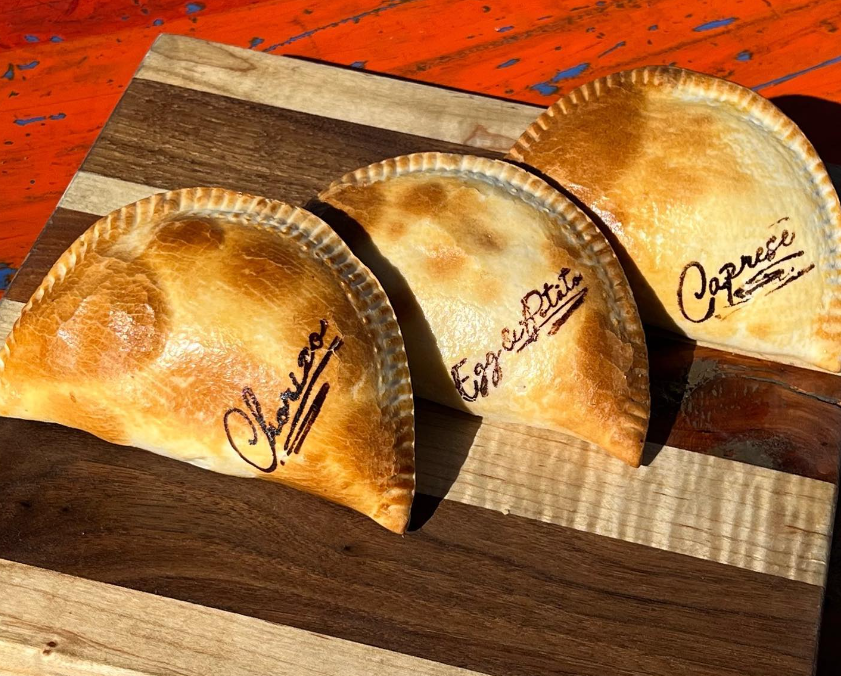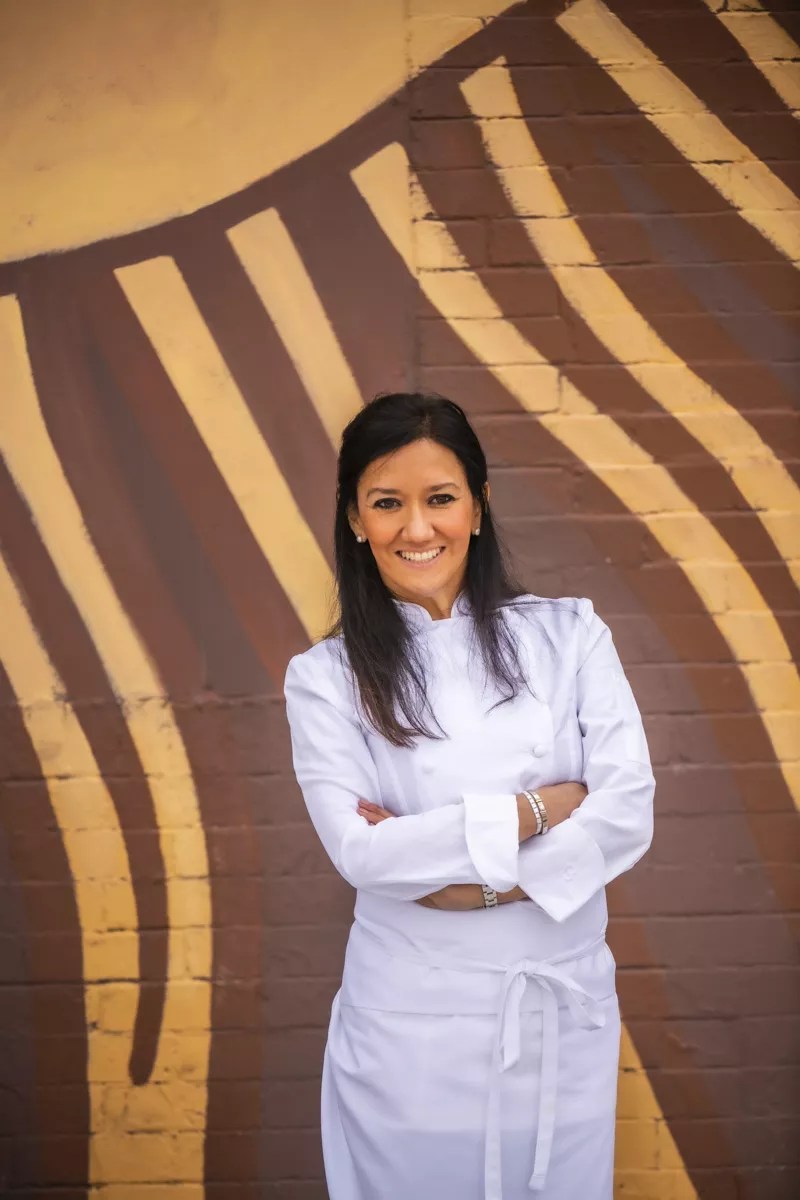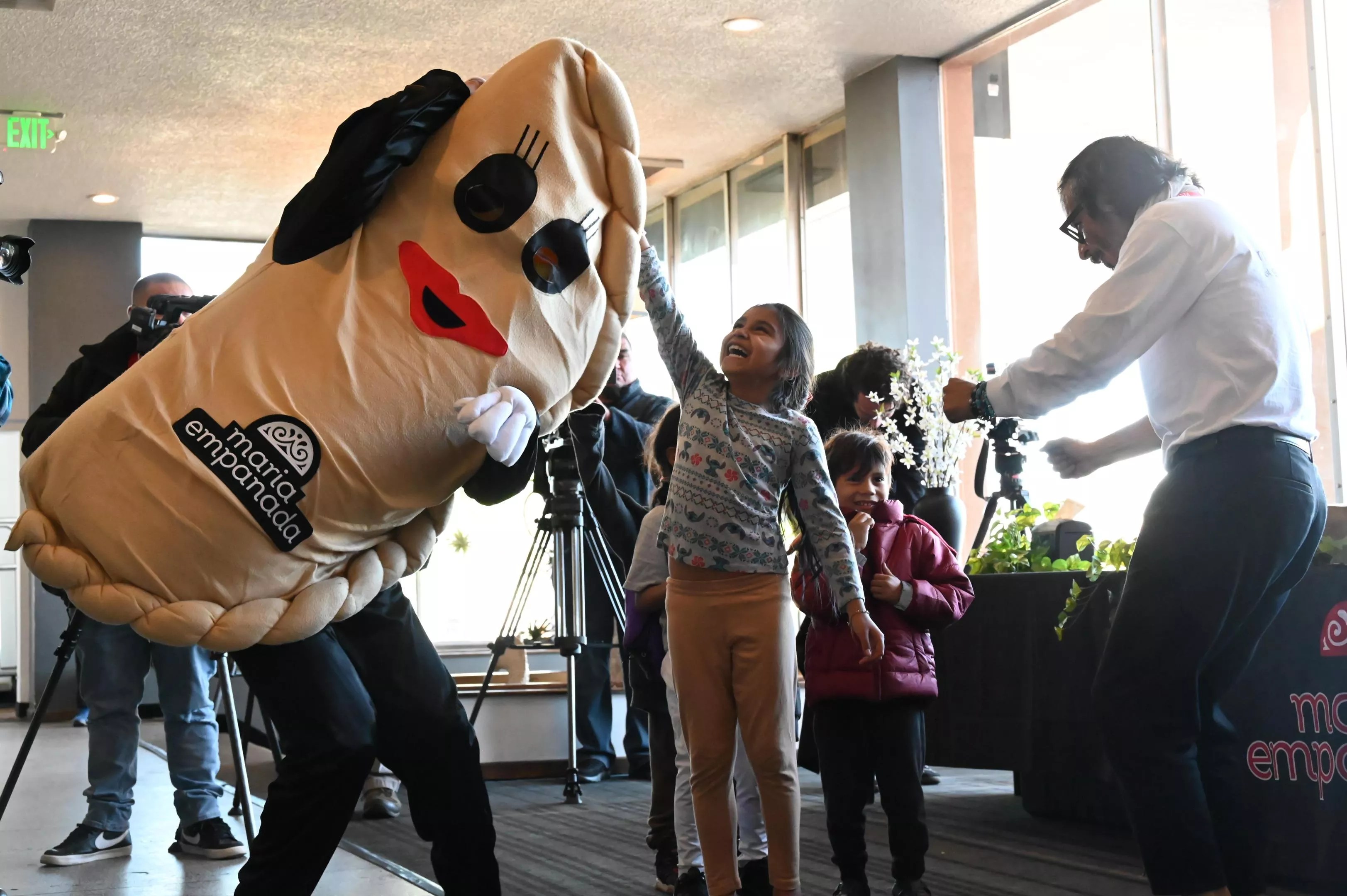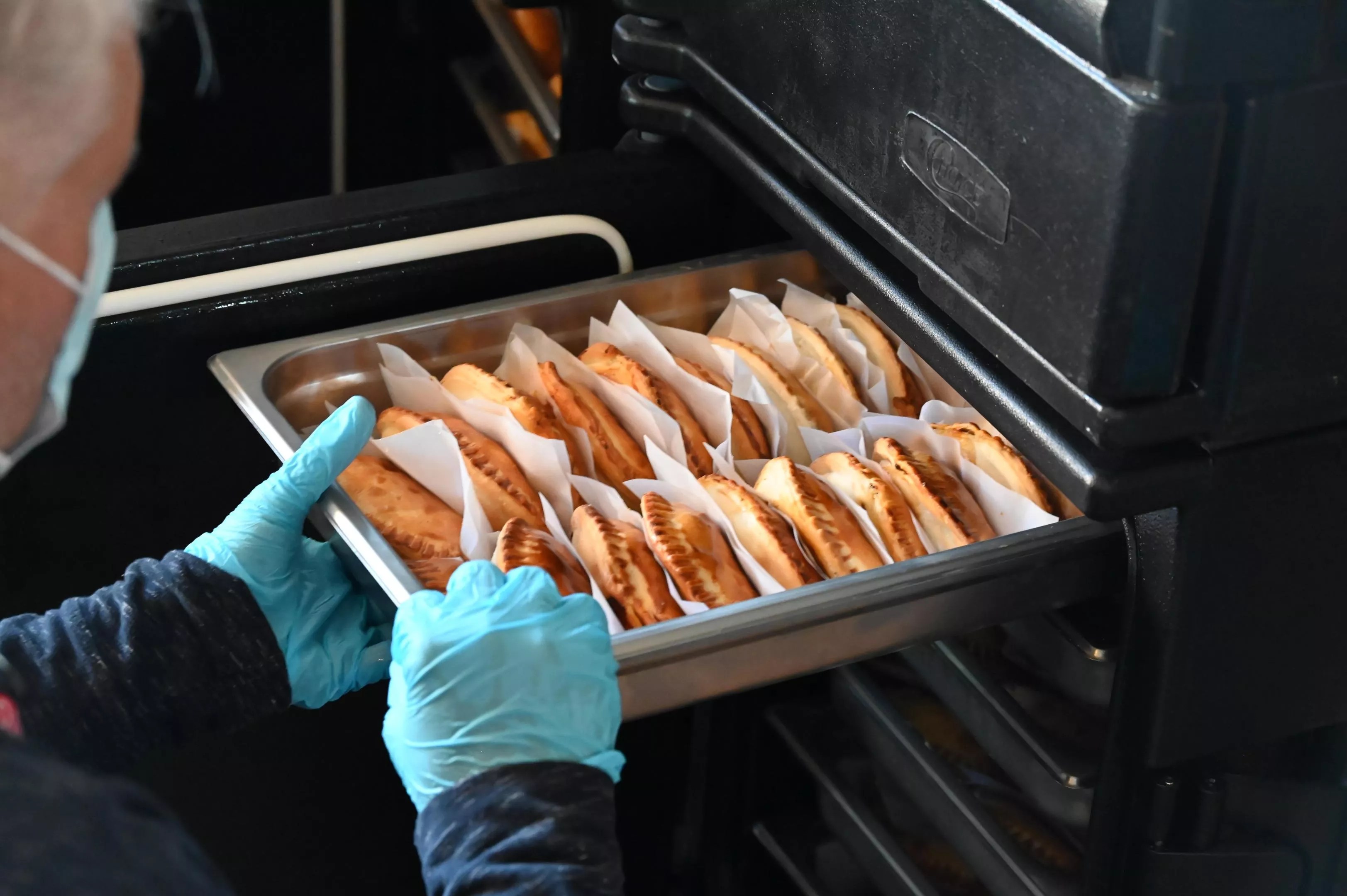
Maria Empanada/Instagram

Audio By Carbonatix
The migrants who have come to Denver over the past year are grateful for the services provided by the city, nonprofits and local residents, and say they’re “sorry” for the impact they’ve had on the budget.
Still, if they could change one part of their stay in Denver, it would be the food.
Most of the migrants are Venezuelan, and they can’t stomach the spicy stuff that is frequently donated.
But a new deal with Maria Empanada could change that. Today, May 7, the local restaurant company is kicking off a two-month program that will provide the last remaining non-congregate migrant shelter in the city with $25,000 worth of empanadas, roughly 10,000 of the hand-sized dough shells filled with savory goodness.

Lorena Cantarovici, owner of Maria Empanada.
Evan Semón
Lorena Cantarovici, the founder and CEO of Maria Empanada, says that she was inspired to make the donation after following news reports about Denver’s migrant crisis.
“This is a moment where the world is full of mala onda – bad vibes,” Cantarovici says. “This is an obligation of humans to confront this big problem, but we can’t do it in the world. We just need to do it in our little world, and that’s the way Maria Empanada decided to do this.”
Maria Empanada’s mission has always focused on “transmiting buena onda,” or good vibes, she adds. So she thinks of this not as a donation, but as a transaction, because “we will be collecting smiles,” she says.
Cantarovici is from Argentina, where she says she lived “on the edge of homelessness” before she came to the United States more than two decades ago with only a backpack and $300 in her pocket.
“I came with exactly the same aspirations that right now Venezuelans have. I came for a better life,” she says. “I was struggling with jobs. It wasn’t only me; my family had a lot of downs.”
But now, she notes, “I’m giving people jobs in the United States.”
And empanadas. When migrants at the Quality Inn on Zuni Street off Speer Boulevard learned they’d be getting empanadas, “they were really excited,” Cantarovici says. “The one thing I perceive from them is appreciation.”
After Maria Empanada drops off the first round of empanadas today – filled with beef and corn, Cantarovici says, “very traditional for Venezuela” – the restaurant will continue to donate food through June, and perhaps even into July, depending on how many people are in the shelter.

Maria Empanada delivered dinner and fun to a migrant shelter.
Bennito L.Kelty
The Quality Inn has room for 800 people, but the city currently reports a total of 600 migrants in all of its shelters.
The empanadas will be made at the nearby Maria Empanada location, at 1700 Platte Street; Cantarovici also has a location in Aurora and the original shop on South Broadway. Creating empanadas can take up to three days because of all the work that goes into making the dough right, letting it sit and then stretching it; Cantarovici’s empanadas are made with recipes from her mother and grandmother, she notes.
“Every single category of employee” at Maria Empanada, herself included, is going to participate in the program by lending a hand cooking, delivering or serving the empanadas, she says.
The weekly delivery will include enough empanadas for each migrant to take two or three. “It’s a generous meal,” she notes. “This is not something just to be an appetizer. This is a meal.”
The Quality Inn shelter is expected to close this summer, according to Sarah Plastino, director of the Denver Newcomer Program. The city once had as many as seven non-congregate migrant shelters, but has been shutting them down to cut costs.
Nearly 42,000 migrants have arrived in Denver since December 2022, and as many as half of them are still in the metro area, according to the mayor’s office. Over the past seventeen months, the city has spent more than $70 million on migrant support, including $8.1 million to feed them.
“Food is our third-largest expenditure behind staffing and facilities,” says Jon Ewing, the spokesperson for Denver Human Services. “Having a group like Maria Empanada come in and help out is really, really special.”

Fresh empanadas appeal to migrants.
Bennito L. Kelty
The most popular food among Venezuelans is the arrepa, a dough stuffed with meat, potatoes or other ingredients, similar to empanadas. They also like pabellón criollo, the national dish of Venezuela, as well as other meals with the same ingredients: black beans, white rice, shredded beef and plantains.
To make meals more enticing, Venezuelan migrants often make arepas or find grills and cook pinchos, which are skewers with sausage and chicken. A few South American food vendors have even set up shop outside the Quality Inn.
Adults housed at the Quality Inn get two free meals a day – breakfast and dinner; kids get lunch, too. The shelter also offers snacks like trail mix, granola bars, string cheese, crackers and fruit. Water bottles and cans of soda are also available.
Before Maria Empanada stepped up, the only other organization providing free meals to migrants was SAME Cafe, which organized a meal train – first at Central Park and now at the Quality Inn – and continues to serve healthy meals every Wednesday and Friday. It’s served upwards of 7,000 meals since the beginning of the year.
Now Maria Empanada will add to the mix. “We’re serving food that is real familiar to them,” Cantarovici says. “It is the taste of home that will bring them to happiness. It is something that is more South American, food without spices. They’re used to empanadas.
“Argentinians and Venezuelans, we don’t eat spicy,” she adds. “We don’t eat hot ingredients. We eat something that has a lot of flavor, a lot of condiments, but nothing that burns your tongue. It is more neutral.”

Young migrants were excited over empanadas.
Bennito L. Kelty
Cantarovici has already given a few migrant children empanadas; they responded by telling her “Gracias, these are the best empanadas I ate” and “Que ricas están!” (“They’re so good!”), she remembers. “You can see the culture that immediately comes through their eyes.”
Cantarovici hopes her donations inspire Venezuelan migrants to be similarly charitable.
“My hope is that they can see all this effort that the city or country is doing for them,” she says. “The way for them to pay it forward is by being a good human.”